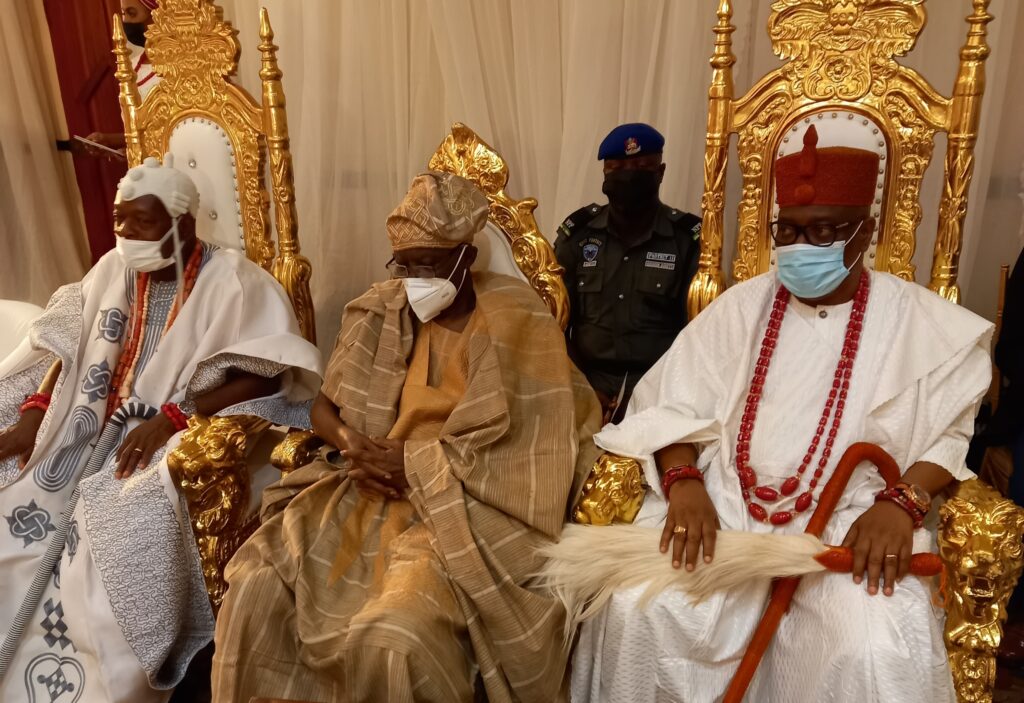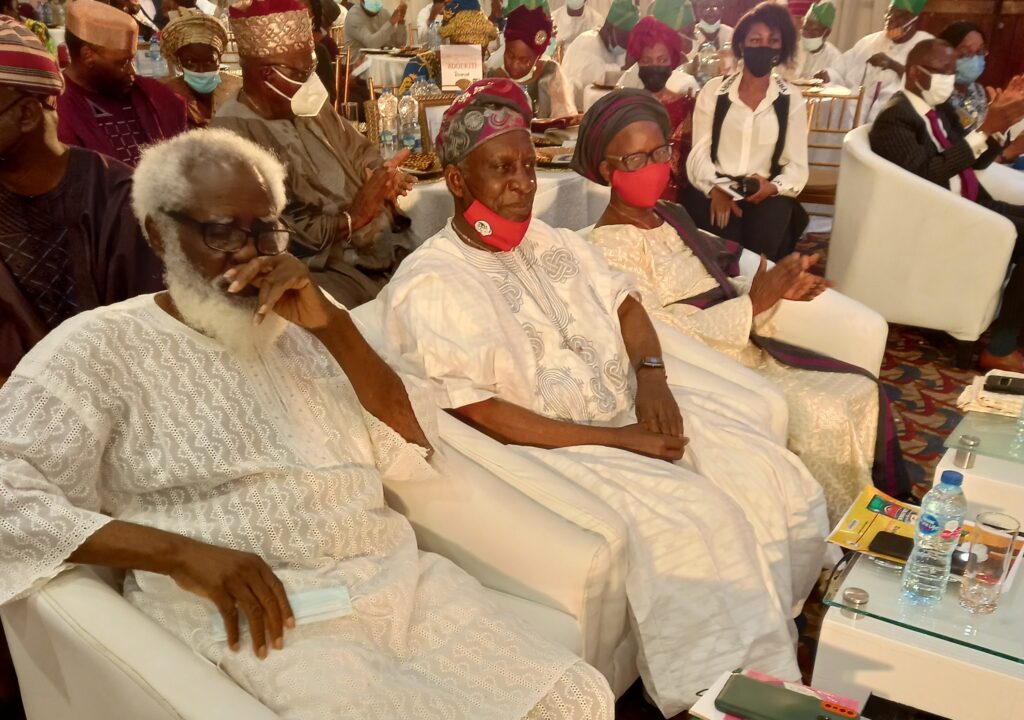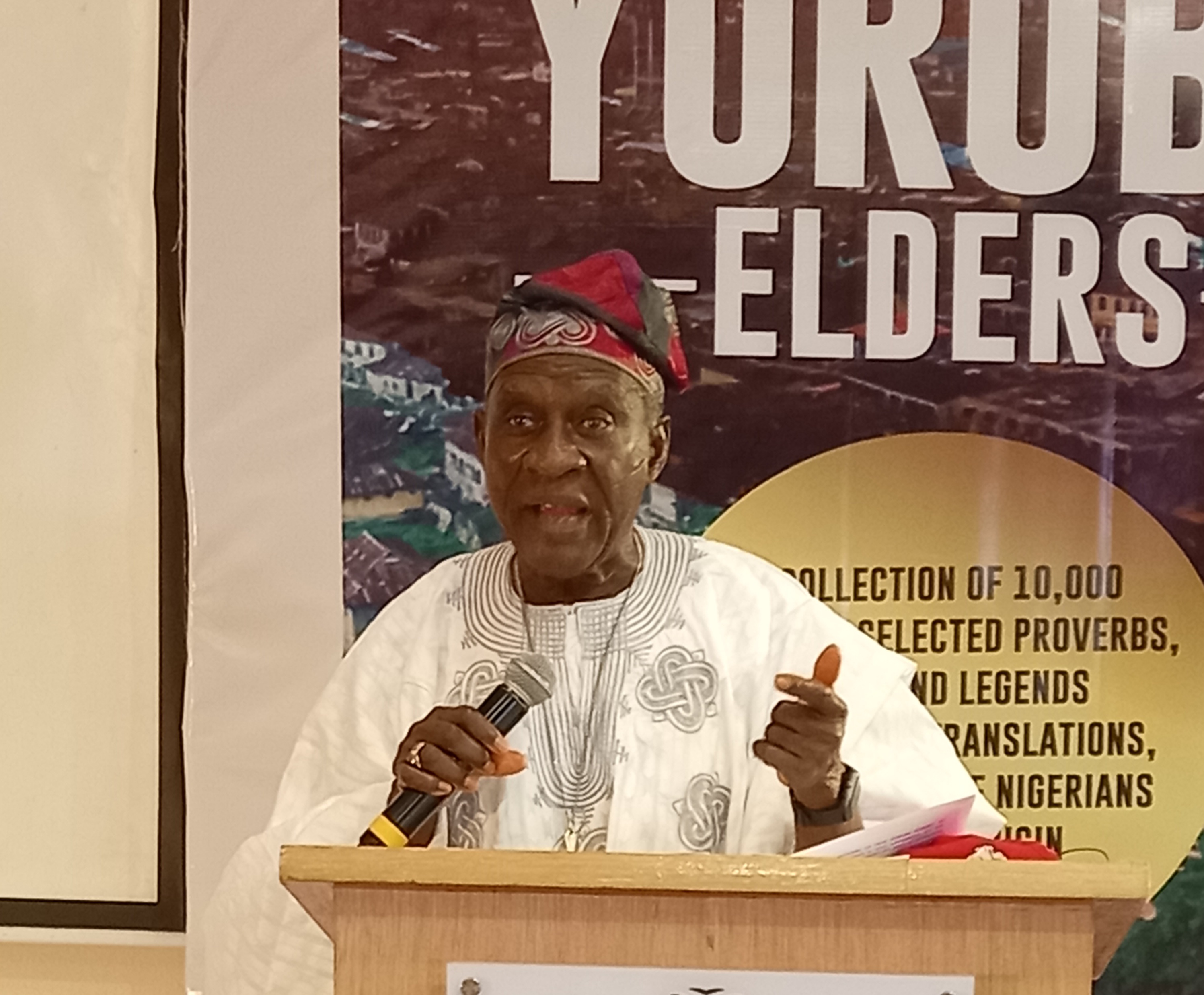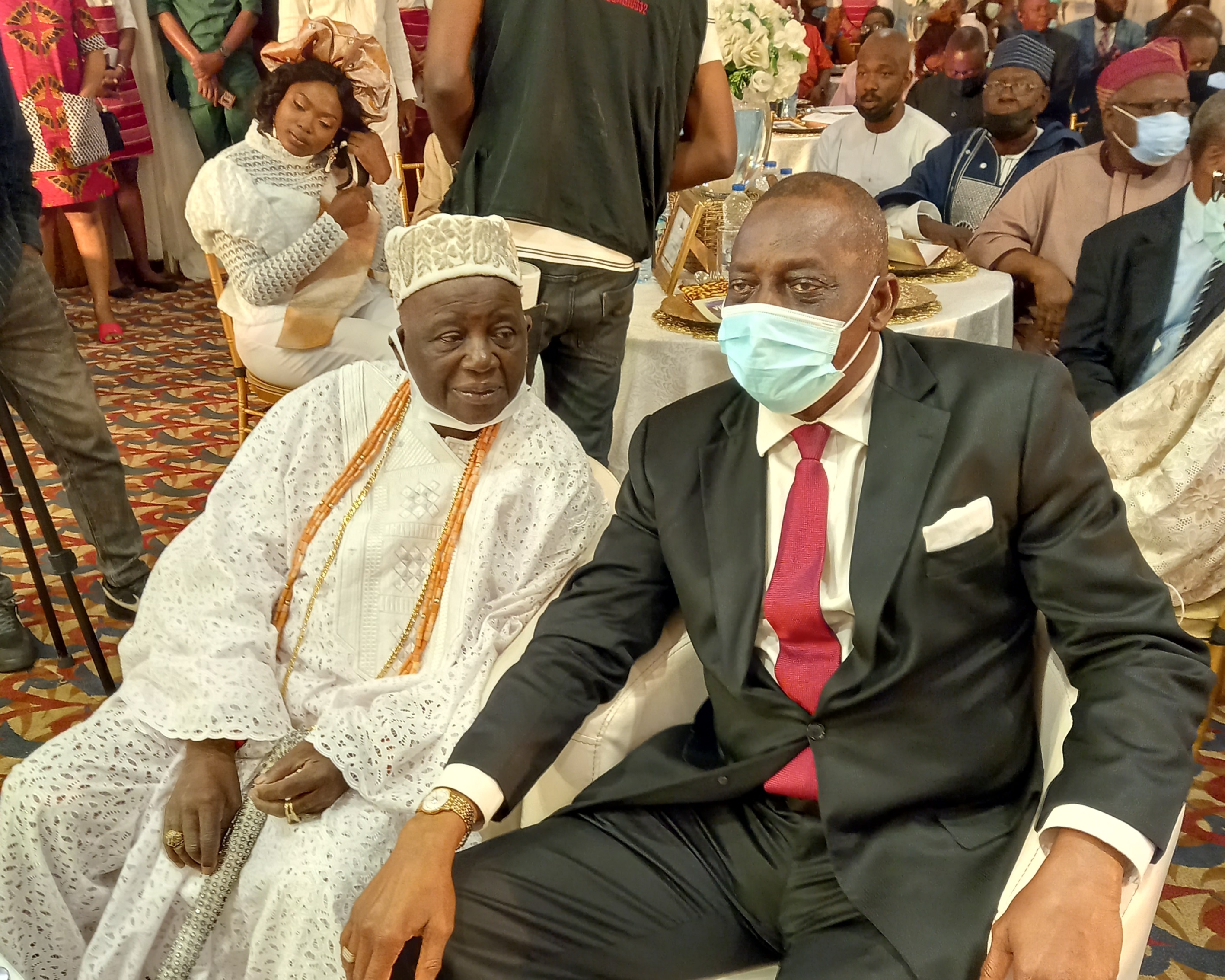Ololade Adeyanju/
The author of a new book, ‘Wisdom of our Yoruba Elders’, Chief Stephen Fatiregun, has expressed his desire to be buried with a copy of the publication.
The 82-year-old author, who is an accomplished accountant, disclosed this while addressing guests at the launch of the book in Lagos yesterday.
Fatiregun, who described Yoruba as one of the most beautiful and widely spoken languages in the world, said he had instructed his children to put a copy of the book in his coffin.
“I have instructed my children that when my time comes up to leave this physical world, a copy of this book should be kept in my casket,” the author disclosed.
He warned Yoruba people against allowing their language to die, due to their failure to teach it to their children and to encourage them to speak it.
“The Yoruba language is one of the richest languages in the world. It’s spoken in many parts of the world. People are dying to know about it. The Yoruba language is what you must not allow to go into extinction. When the colonial boys were here, they did all that was humanly possible to kill the language.
“As a matter of fact, when we were in school, we were punished for speaking what they called vernacular. But thanks to people like D.O. Fagunwa, Chief J.O. Odunjo, the writer of ‘Alawiye’ series who left behind Yoruba literary legacies. It is now up to the present generation to ensure that this language stays. The colonial boys are no longer here again to stop us. We are stopping ourselves. We do not even speak the language to our children. We don’t teach it in school. We don’t communicate with it. What a shame! What people all over the world are struggling to embrace, some people will even say: ‘I don’t want you to speak that language in this house.’ No Oyinbo man will speak Yoruba to his child. It is an inferiority complex for any Nigerian to place much emphasis on a foreign language.”

Fatiregun said it had been established that anyone able to speak and converse proficiently in Yoruba would be able to converse better in any other language. He urged the Yoruba people to be proud of their language.
The author added, “We Yoruba are proud of our culture. We are proud of our heritage. We are proud of our ‘omoluabi’ personality. We are proud of the significant contributions that our heroes and heroines have made since the 18th Century towards the growth of this geographical space called Nigeria. We are proud of all these things. Oh, we are proud. But we are not arrogant.”
The book was jointly reviewed by two eminent Yoruba elders, retired Methodist cleric, Emeritus Archbishop Ayo Ladigbolu, and foremost broadcaster and former Nigerian ambassador to the Philippines, Prof. Yemi Farounbi.

Ladigbolu described the author as “a tireless researcher of African Traditional Beliefs and Culture; a passionate lover of Yoruba language and literature”. He described the book as “an extraordinary Divine mission accomplished for the greater glory of Yoruba cultural heritage and the benefit of the human race”.
He also paid homage to the heroes of Yoruba literature, saying, “Chief D.O. Fagunwa blazed the trail in Yoruba fictional writing. Chief J.O. Odunjo provided the landmarks in the Alawiye series of Yoruba textbooks. Johnson’s ‘History of the Yoruba’ remains a major reference in the study of Yoruba history. We also celebrate such authors as Oloye Samuel O. Ojo, Bada of Shaki who, in 1970, first published ‘Owe Yoruba ati Isedale Won’ followed by G.A.B. Bello Olowokere’s ‘Egberin Owe Yoruba ati Itumo Won ni Ede Geesi’ in 2004.
“Another notable hero is Chief F.I. Sotunde, who in 2009 published ‘Yoruba Proverbs and Philosophy’ with 2,500 proverbs translated into English language. As we celebrate and appreciate these pacesetters, we also welcome to the Yoruba Literature Hall of Fame, Chief Stephen Ayodele Fatiregun, who has broken every record in the annals of Yoruba proverbs by producing what I will call Yoruba Proverbial Fatiregunpedia or Fatiregun Encyclopedia of Yoruba Proverbs, under the title,‘THE WISDOM OF OUR YORUBA ELDERS.’”
Ladigbolu said he agreed with the author that, “the uniqueness of many Yoruba proverbs is that they are deeply philosophical, pleasantly entertaining and full of wisdom”.
He added, “I share the author’s sentiments (Preface: V) about the likely verbosity of the translation of the proverbs into English language, but cannot deny the veracity of his claim that the translation was meant to ‘assist the none Yoruba and indeed anybody from any part of the world to understand and appreciate the mindset, philosophy, beliefs, and culture of our People.’ This, therefore, provides ample justification for translating this book to other languages in the future as the need to expand the readership scope and place the book on the global market may arise.”
He stressed that “the proverbs in this compendium come in varying degrees of complexity. In scope, they cover 32 areas or facets of all imaginable situations and locations. What each reader gets out of the proverbs will depend on his level of understanding and absorption. The proverbs are Pan-Yoruba in their spread and catchment. This work also facilitates an exchange of proverbs from one Yoruba location to another, thereby enriching the proverbial vocabulary of the readers, and perpetuating the universal application of the wisdom of our Yoruba Elders”.

He further noted, “Some of the proverbs in this book are new and contemporary, ( 5403, 5410, 5412, 5440, 5451, 5495) They have emerged only in recent years from observations of contemporary events, and behaviours. They are bound to be more popular among the younger generation. The same dynamism has rendered some old proverbs obsolete as a result of changing values, e.g. Adie Irana kii se onje aje gbe ‘The funeral procession feast comes in turns’.”
Farounbi commended the author’s efforts in translating the proverbs contained in the book to English and encouraged him to produce volumes two and three as a means of preserving the richness and beauty of the Yoruba language.
He said the book was timely and highly significant given the fact that Yoruba had been listed as one of the two languages that might go into extinction soon.
The ceremony was attended by dignitaries, including traditional rulers, led by the Elegboro of Egboroland (Ijebu-Jesha) Oba Moses Oluwafemi Agunsoye II, religious leaders, business leaders, professionals, politicians, and functionaries.

The Wisdom of our Yoruba Elders is a collection of 10,000 carefully selected proverbs, fables, and legends, with English translations plus a list of 130 notable Nigerians of Yoruba origin.
0





